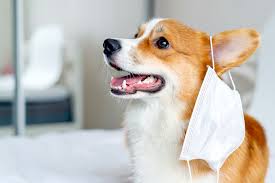
How much celery can I give my dog? If your dog is having celery for the first time, you can start by offering them one or two bite-sized pieces and see how it affects them. If you don’t notice any adverse reactions, you can give celery in future as a treat, but always in moderation.
Can dogs have raw celery? Yes, your dog can eat celery. Celery contains nutrients which can be a healthy addition to supplement your dog’s diet. Just like any food you would incorporate into your own diet, celery can be good for dogs in moderation.
What happens if a dog eats celery? If dogs eat too much celery (or too much of any vegetable) it can also cause gastrointestinal upset, including gas, abdominal bloating, nausea, vomiting and diarrhea. Finally, since dogs don’t digest raw vegetables well, problems could occur if the dog swallows large chunks of celery whole.
Why is celery good for dogs? Celery is packed with lots of beneficial vitamins. This includes vitamin K, vitamin C, and vitamin A. Vitamin K plays a key role in proper blood clotting, as well as keeping your dog’s bones strong and healthy.